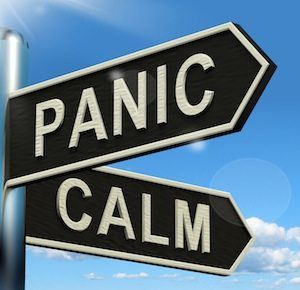A recent HSE paper has highlighted the fact that stress is now the most common form of work-related illness having increased to its highest rate in 16 years. The impact on the workplace is significant. NHS Digital reports that one third of sicknotes are for mental health conditions, an increase of 14% from 2016 to 2017.
 There are no figures for the events industry although a survey by Stress Matters cited an event coordinator’s job as the 5th most stressful after military, emergency services and similar jobs. It is clear from numerous health and safety forums such as SAGE, where large numbers of health and safety professionals in the events industry compare notes, that stress is a significant issue reflecting the national trend. It is easy to see why. The events industry is characterised by long unsocial hours, travel away from home, tight deadlines, and periods of high intensity during the events themselves. It is not unusual for event operations staff to find themselves working 24 hour shifts. Added to the ordinary pressures of event management are the understandable concerns that many staff have regarding the current security situation both in terms of exposure to harm and in some cases having to make what are potentially life and death decisions regarding event security arrangements.
There are no figures for the events industry although a survey by Stress Matters cited an event coordinator’s job as the 5th most stressful after military, emergency services and similar jobs. It is clear from numerous health and safety forums such as SAGE, where large numbers of health and safety professionals in the events industry compare notes, that stress is a significant issue reflecting the national trend. It is easy to see why. The events industry is characterised by long unsocial hours, travel away from home, tight deadlines, and periods of high intensity during the events themselves. It is not unusual for event operations staff to find themselves working 24 hour shifts. Added to the ordinary pressures of event management are the understandable concerns that many staff have regarding the current security situation both in terms of exposure to harm and in some cases having to make what are potentially life and death decisions regarding event security arrangements.
Most managers in the events business are well aware of their health and safety responsibilities and the law which sits behind that. Whilst there are clear duties under the Health and Safety at Work Act and subsidiary legislation to prevent sickness and ill health, there are actually no specific ‘Stress at Work Regulations’ per se. However, employers can and have, been successfully sued for stress related conditions. The most prominent case law, Dickins v O2 Plc, forms the basis of employers’ current civil liabilities.
In its ruling the court accepted that O2’s actions were not the only cause of the claimant’s stress; however the court found that the employer’s breach of duty had made a material contribution to Ms Dickin’s ill-health. Although the Court of Appeal in Dickins applied the guidance set out in previous case law, the decision seems to have lowered the threshold and made it easier for employees to bring a successful claim against employers for stress-related illnesses. The judgment made it clear that employers need to do much more than simply offering a counselling service to employees suffering from stress, in order to discharge their duty.
 Once an employer has sufficient indication that an employee is suffering from work-related stress, it has a responsibility to take appropriate action to relieve that stress. The employer will not be able to defend itself by arguing that the employee in question should have assisted themselves.
Once an employer has sufficient indication that an employee is suffering from work-related stress, it has a responsibility to take appropriate action to relieve that stress. The employer will not be able to defend itself by arguing that the employee in question should have assisted themselves.
Whilst there are obvious legal imperatives, the most compelling case for employers is commercial. It is clear from numerous respected sources that stress is a growing problem. One in five cases of stress at work requiring time off results in over twelve week’s absence and in total represents over 45% of all working days lost due to ill health which is a significant loss and cost to industry.
A recent article in Health and Safety at Work points to part of the problem. Many employers include dealing with stress under general wellbeing. Whilst a congenial working environment has obvious general benefits no amount of sports memberships and free fruit in the staff ‘chill out zone’ can address the issue of stress unless the root causes are tackled. Some well-meaning initiatives can be misdirected. Sending an employee on a time management course does not help when they are simply overloaded with work.
So how can we deal with it? The first step is to recognise it when we see it which means understanding its nature. There are various definitions of stress but most professionals agree that it centres around an individual’s perception that they are unable to cope. It can be a combination of workload and personal issues. Stress on its own is not a medical condition per se but a set of circumstances which lead to stress related illnesses. It can manifest itself as poor mental health, heart conditions, high blood pressure, stomach and bowel disorders and many other health related conditions. Often these illnesses mask the true underlying cause.
As with all health and safety issues good management starts with having an effective stress management policy which sets out the company’s position and allocates responsibilities for managing the issue.
Organisations like Mental Health First Aid England and St John Ambulance provide courses to train ‘mental health first aiders’ to provide support in the workplace. Setting up a program for training staff as mental health first aiders would be a good start. Stress Matters and EventWell have both produced reports focussing on the events industry which make enlightening reading.
As for any health and safety related issue, gaining recognition and support at the top of any organisation is key and for that to happen it needs to be recognised as an issue that needs to be tackled. Ultimately an event is just a concept with its value vested in the brand and its reputation for success. That relies on the staff who run the event itself. There is evidence that valued staff are voting with their feet and walking away from the events business altogether citing stress as a contributory factor. It is not, therefore, just the health of individuals that is at stake but potentially the health of the company itself.

